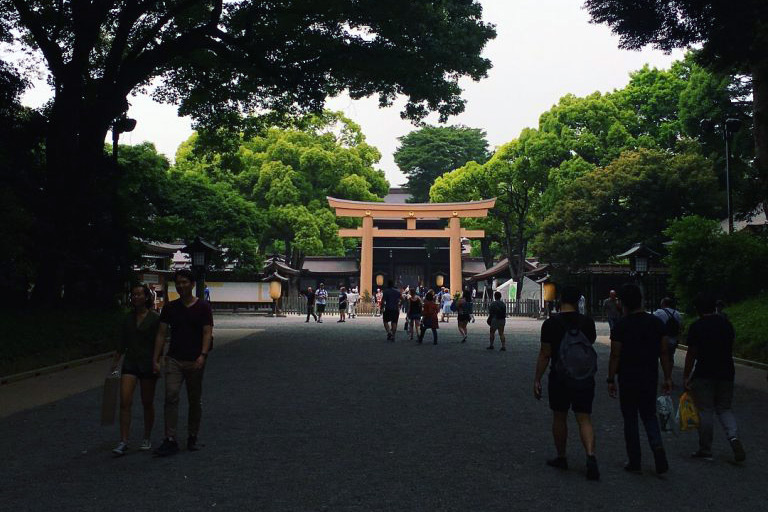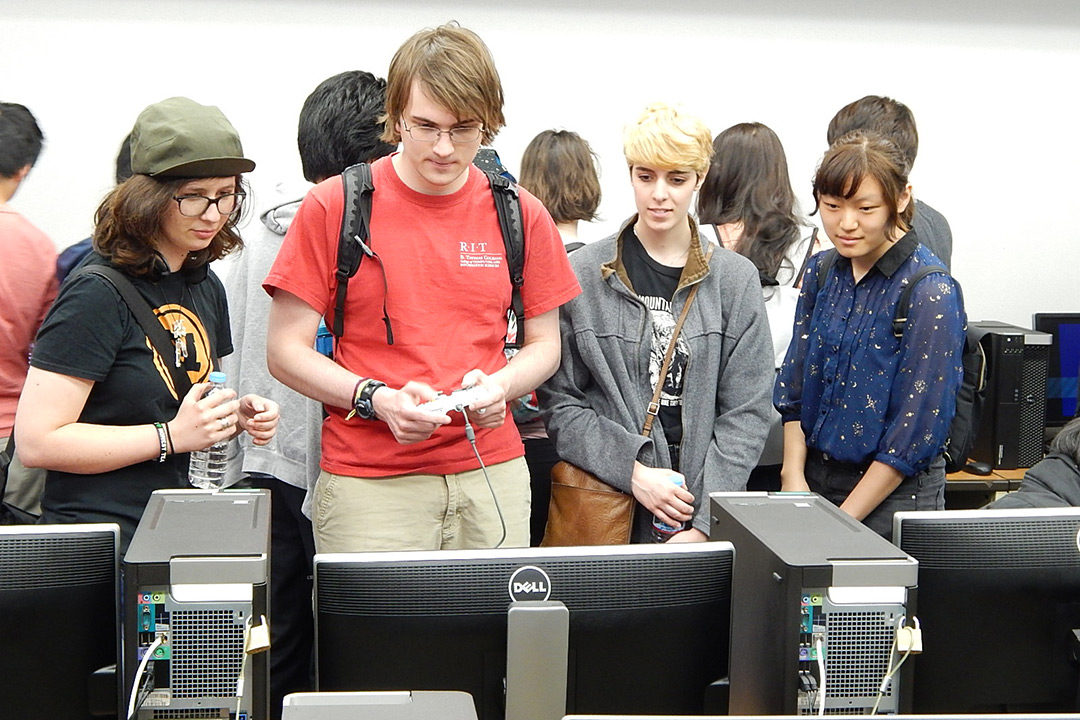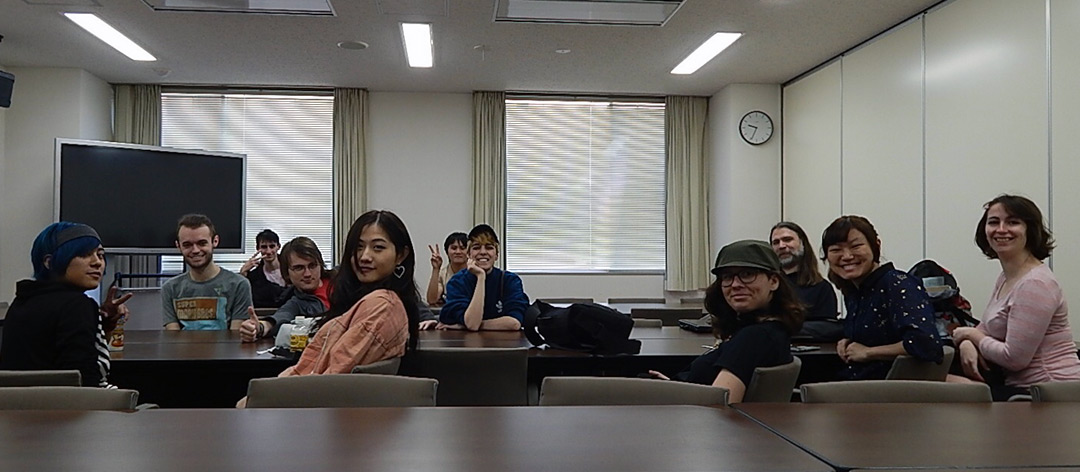RIT students explore Japanese video game industry during study abroad
Two-week trip features visits to cultural sites, colleges and professional game studios
Nicole Lopez
Ten Rochester Institute of Technology students got to begin their summer vacation in Japan, immersing themselves in a new culture and learning about the world’s third largest video game market.
The two-week trip through the Japanese cities of Shiga, Kyoto, Osaka, Hiroshima and Tokyo was the culmination of a spring semester course that introduced students to game design and development in Japan. For the study abroad program, students learned from gaming professors at Ritsumeikan University, participated in a game jam with Japanese students and visited five game studios, including Bandai Namco—best known for creating the game Dark Souls.
Ariana Perry
Ten RIT students completed a two-week study abroad this summer, where they explored a new culture and the Japanese video game industry.
Stephen Jacobs, a professor in RIT’s School of Interactive Games and Media (IGM), has taught similar study abroad courses before, previously taking students to explore the German video game industry. He chose to create a study abroad to Japan, along with David Simkins, an associate professor in IGM, because Japan is so key to the video game industry.
“We want students to experience other cultures and learn through engaging in cultural practices that will challenge them to explore and develop new ways of thinking and doing,” said Simkins. “This is as much true of the humanities and liberal arts side of what we do in university, as it is in the technical.”
As part of this year’s trip, students logged their adventures in a class blog, titled IGM Explores the Games Industry and Academia in Japan.
RIT students also visited Kyoto Computer Gakuin, a long-time sister school of RIT, where they saw some of the student games demoed and got to discuss the differences and similarities in their studies. Over the weekend, students from all three schools teamed up to collaborate in a 10-hour game jam, where they worked to create video games from scratch.
“We organized the game jam because encouraging interaction toward a purpose around an exciting shared goal is excellent context for learning about other people, how they work and what is important to them,” Simkins said.
Stephen Jacobs
The RIT group competed in a game jam with Japanese students from Ritsumeikan University and Kyoto Computer Gakuin. The teams had 10-hours to create video games.
Students also got to tour several professional game studios, including Universal Studios Japan, Q-Games, CyberConnect2, DeNA and Bandai Namco. While at DeNA—makers of the upcoming Mario Kart Tour—students even had their game jam creations reviewed and critiqued by two professional game developers. At the Universal Studios Theme Park in Osaka, students got to tour some of the attractions and learn about the design process from members of the design team.
“I learned a lot about how Japanese game companies operate,” said Nathan Glick, a third-year game design and development major from Stratford, Conn. “The most interesting thing I noticed during company visits was how casual the game companies were in comparison to the usual Japanese company, which is highly formal and work-heavy.”
Throughout the trip, students were fond of Japan’s cuisine, from regional dishes like okonomiyaki in Hiroshima and takoyaki in Osaka to “cheap, but quality, convenience store food around every corner. The group also had dinner with members of the Japanese chapter of the International Game Developers Association (IGDA).
“Trips like these provide students with invaluable insight on how the professional world of other countries operate,” said Ariana Perry, a fourth-year applied arts and sciences major from Tiverton, R.I. “This is extremely useful for students like myself who have an interest in working overseas after graduation.”
In addition to video game-related visits, the RIT group also took time to experience the history and culture of Japan, making stops at gardens, shrines, the Hiroshima Peace Memorial Park and Museum, the gardens of Tokyo Imperial Palace and the Ghibli Museum, a museum showcasing the work of the Japanese anime powerhouse Studio Ghibli.
For Aiden Melendez, a game design and development master’s student, the program was an opportunity to check out the Japanese game industry for a possible career choice and put his minor in modern language Japanese to practice.
“Study abroad is something I hope most people would be able to experience sometime in their life,” said Melendez, who is from Treasure Island, Fl. “Not only is it essentially a vacation, but you can learn so much when you are put into the context of another culture—even about oneself and one’s own culture. People are able to think more diversely and openly when experiencing something outside their own bubble.”
In 2018, The Princeton Review ranked RIT as one of the top places in the world to study game design. The undergraduate and graduate level programs are housed in the School of Interactive Games and Media (IGM) within the B. Thomas Golisano College of Computing and Information Sciences.
Stephen Jacobs
The study abroad trip allowed RIT students to meet Japanese students studying game design and tour five professional game studios in Japan.

















